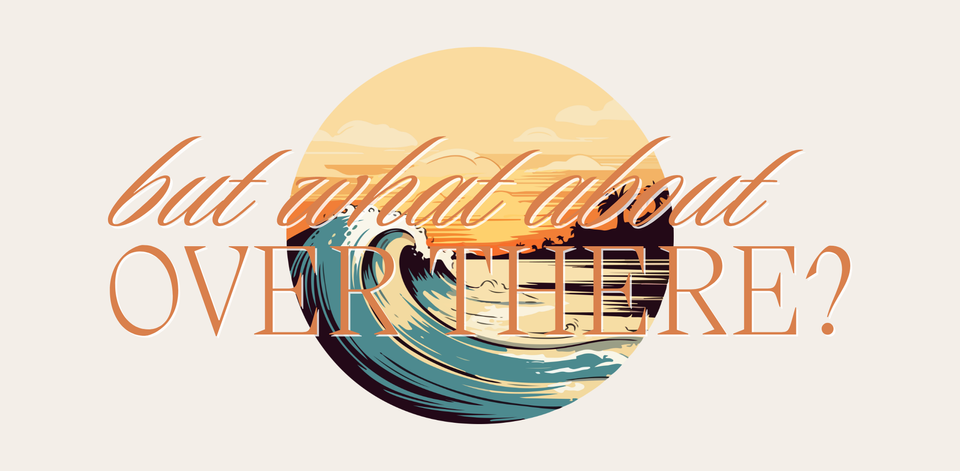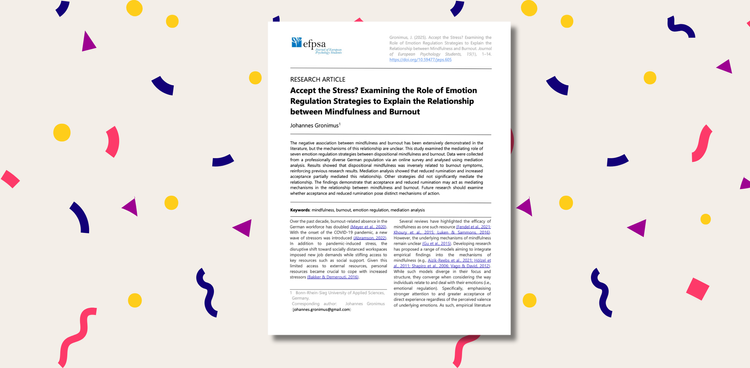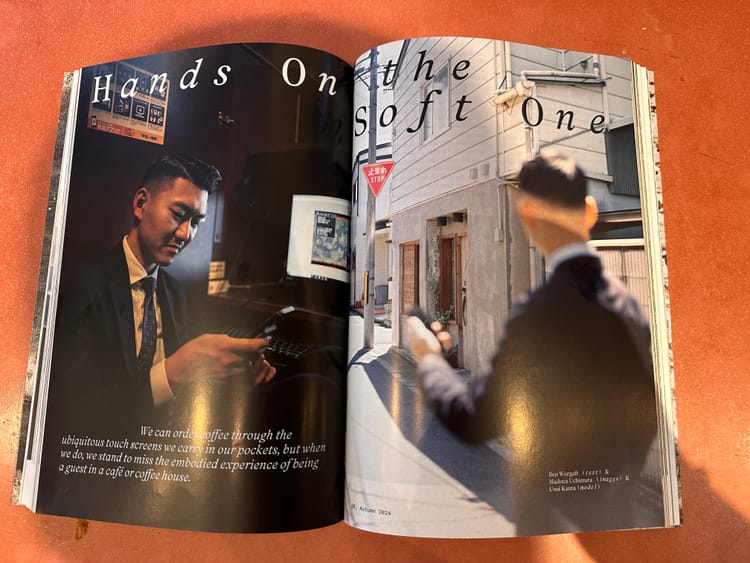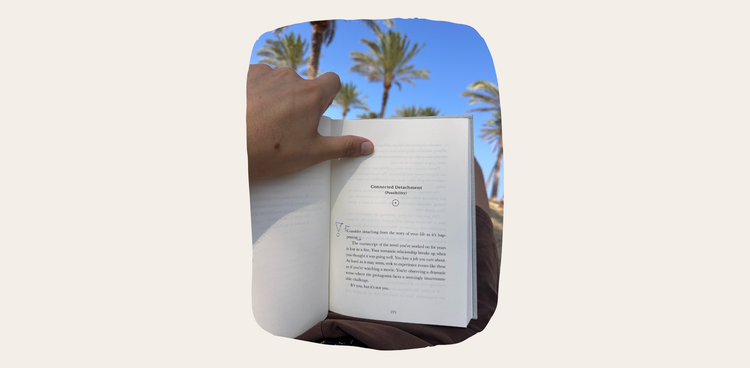The Curious Case of Overthereitis

This week, my dear friend Josh shared with me a journal entry peculiarly titled "Overthereitis". When I read that title, I had a feeling it was gonna be a banger. And it was:
This phrasing was given by a Tofino local lady who I don’t know the name of yet, but she mentioned that in her morning surf, she was afflicted with overthereitis.
Poor lady. Sounds quite serious, doesn't it? So what is this gruesome illness the lady suffers from? Well, when I read the explanation I had to grin because I felt personally called out. Turns out I suffer from Overthereitis too, and so does the entire surfing community.
There's a joke among surfers that "it should really be called paddling" because an hour of "surfing" usually consists of 57 minutes of paddling and three combined minutes riding waves. Those 57 minutes are a patience game: you're sitting out the back trying to pick which wave to go for and where to sit, eyes scanning the break to figure out where it could be better.
Once you see a nice left break 50m over there, better believe there will be a migration of boards within 10 seconds. And then the wave of the day comes through precisely where you were before. Everybody knows it will, but they paddle around anyways because it's easier than waiting patiently. This is overthereitis:
"you couldn't help yourself but paddle over there because it looks better than where you currently are, and then find that it's the same - or worse: worse."
Poor, poor surfers. Don't they have a tough life, missing wave of the day and all that. But if you've read anything I've ever wrote, you can probably imagine this is not a surfer suffering awareness fundraiser. There's a transfer here, and I'd even go out on a limb and say you've already made your own. At least in my mind, reading the word "overthereitis" had already sparked associations long before I even read the entry.
Overthereitis finds me when a project starts getting a little harder past its exciting start phase, and doing the next thing becomes awfully attractive all of a sudden. But it also finds me when I can't make it 20 minutes into a task without checking my phone. It's the mechanism that leaves me trying a hundred different techniques to get my life in order, each for a week before moving on to the next one. And it's the reason why I have about half a million unfinished essays lying around.
Surf-related overthereitis, then, is just a common variant of this broader tendency we have. The tendency to prematurely switch our attention, driven by the illusion that what's just out of reach is inherently better than what’s within it. And to a degree, it's in our nature. In our dopaminergic circuitry, to be specific. But sparing you a long lecture of neurotransmission, USCF Neuroscientist Dr Adam Gazzaley masterfully breaks this down using optimal foraging theory:
Let's say you're a squirrel looking for nuts, and you've found a marvellous patch under a delicious hazelnut tree that you now dedicate your full attention to. As you keep reaping the rewards of your search and munch up nature's Nutella, the patch lightens and you it takes longer and longer to find the next one. In other words, your foraging yields diminishing returns. So, how long should you keep going before you go looking for the next tree?
A central factor in this question is the proximity of other trees: If this is a lonely tree in a desert, you better stay and grab aaaaaall of it. But if the next one is only a hop and skip away, the answer is quite different. Which is fascinating if you're considering a career change into squirrel education, but for the rare few that aren't - why should you care?
Well, we too were foragers once. Before agriculture, cities, the internet and GPT-4o, we had a couple of million years to evolve brains optimised for foraging the forests for berries and other tasty stuff. And it shows. As Gazzaley argues, we're still using the same circuitry, just optimised for another resource: information.
Imagine you’re working on an essay, and it’s getting hard. Your brain (mine would never, of course), in an ancient survival tactic, starts thinking, “Hey, maybe there’s something more rewarding to be found on Instagram, or perhaps that email I haven’t checked yet?” Three minutes into scrolling, you find that this too is getting old and start wondering where the next tree might be. Good thing there's about a million other trees just around the corner to forage next.
And this is the issue: A key factor in foraging is the distance, and we've created tools that reduce the distance to zero. With the entirety of human knowledge in my pocket at all times, and endless algorithmic feeds that might show me precisely what I was looking for only three scrolls away, this decision-making process goes absolutely nuts (pun intended). Try plugging "0" into any equation including a multiplication and you'll find it becomes useless. When the answer to "Should I switch?" is basically always yes, you're left frantically running in circles.
Which would be bad enough already if it only affected my work. There are a million articles and entire books on the value of deep work, and you all know that you should put your phone away when you're trying to concentrate. The studies around attentional residue are basically common knowledge too: When you switch away from a task to check your phone for a minute, it takes about 30 minutes to fully come back to your original task. Nothing new here.
Where I get worried is when this stuff seeps over into the realm of social connection. I might out myself as a horrible human being here, but sometimes I catch myself 45 minutes into a phone call, answering some admin-type emails. Why? What the hell is that? Attention is a zero-sum game, and reading my emails means I'm giving the person on the phone less than my full attention. There's no way around it. But with my information foraging circuitry in overdrive because someone messed up the formula, here I am trying to fool myself into thinking I could multitask. As if I could do it all. And I feel like this delusion is only nurtured by our environment.
In the face of this overwhelmingly endless flow of information, we're also fed the idea that we could handle it all if we only found the right technique. A little time-blocking here, some Pomodoro there, and if I garnish the whole thing with enough exercise and meditation, it'll all be figured out. But it won't.
And that isn't because these techniques don't work. They do. When I came back into uni and found myself mid-lecture reading emails or checking my phone, I decided to block hours in my calendar where I hid my phone and committed to only do uni for this hour. The difference was ridiculous for such a simple tool. What's more, meditation has been shown to be incredibly helpful in this context because you become aware of the urge to switch when it arises, which gives you the option to simply say "no" instead of being swept away by it and wondering afterwards how you even got here. And what you notice when you really pay attention to these moments where you're longing to switch is this:
Overthereitis is, in essence, a subtle fear: a fear of missing out, a fear of not being enough, a fear of not achieving our potential. Social media feeds stoke the embers of a foraging mind, each post pointing to "over there" with the promise of excitement or enlightenment. In the face of sheer infinite possibility, we're told that if we only become optimised enough, we can take advantage of all of them. But this frantic switching is nothing but a desperate attempt to escape the inevitable:
To come back to our opening analogy, all you can do with these tools is become a better surfer. But even the best of surfers can only surf one wave at a time. Even on the best of days where perfect waves galore are coming in everywhere, you're bound to miss almost all of them because you simply can't surf an entire beach at once. What's worse, if you waste all your energy paddling up and down the break, you're entirely exhausted by the time wave of the day does come through - so you miss it even if you're in the right spot.
We're a generation generation notorious for despising commitment, and I wonder how much of that comes down to overthereitis. To commit to a project, place or person means excluding yourself from the opportunity to switch, even when the next shiny thing is looking a lot more attractive. To a mind fuelled by lack, urgency and optimisation, this is a dreadful thought. After all, you could miss what's over there - How unoptimised of you!
But in our rush to seek better peaks, better projects, better lives, we might just end up paddling away from the very thing we're looking for: the perfect wave en route to right where you sit, the project that just needs a little more effort, the joy found in depth rather than breadth.
Overthereitis isn't even about productivity or progress or potential or whatever: it's about reclaiming your peace of mind. Whenever I'd go hella anxious about a life decision, my dear friend Liam used to calm me down with a simple: "It's not about making the right decision, it's about making the decision right." I feel it applies here as well: Sure, the grass over there might be mighty green. But if you take the time and water it, so could the grass right here. Only if you spend a life chasing greener grass, you'll never learn gardening. If you're stuck on superficial contact with as many trees as possible, you'll never find the leaves make for some great salad. Or something like that. Point being:
In our quest for optimisation, let’s not forget the joy of truly engaging with the present. The perfect wave, mastery of any hobby, a real conversation – they all require us to be fully here, not perpetually looking over there. The joys of depth and commitment are unavailable to those suffering from overthereitis. Including yours truly. But this is a project I'll try and stick with.
PS: Put away that damn phone when you're trying to do anything that requires concentration. You know it.




Comments ()